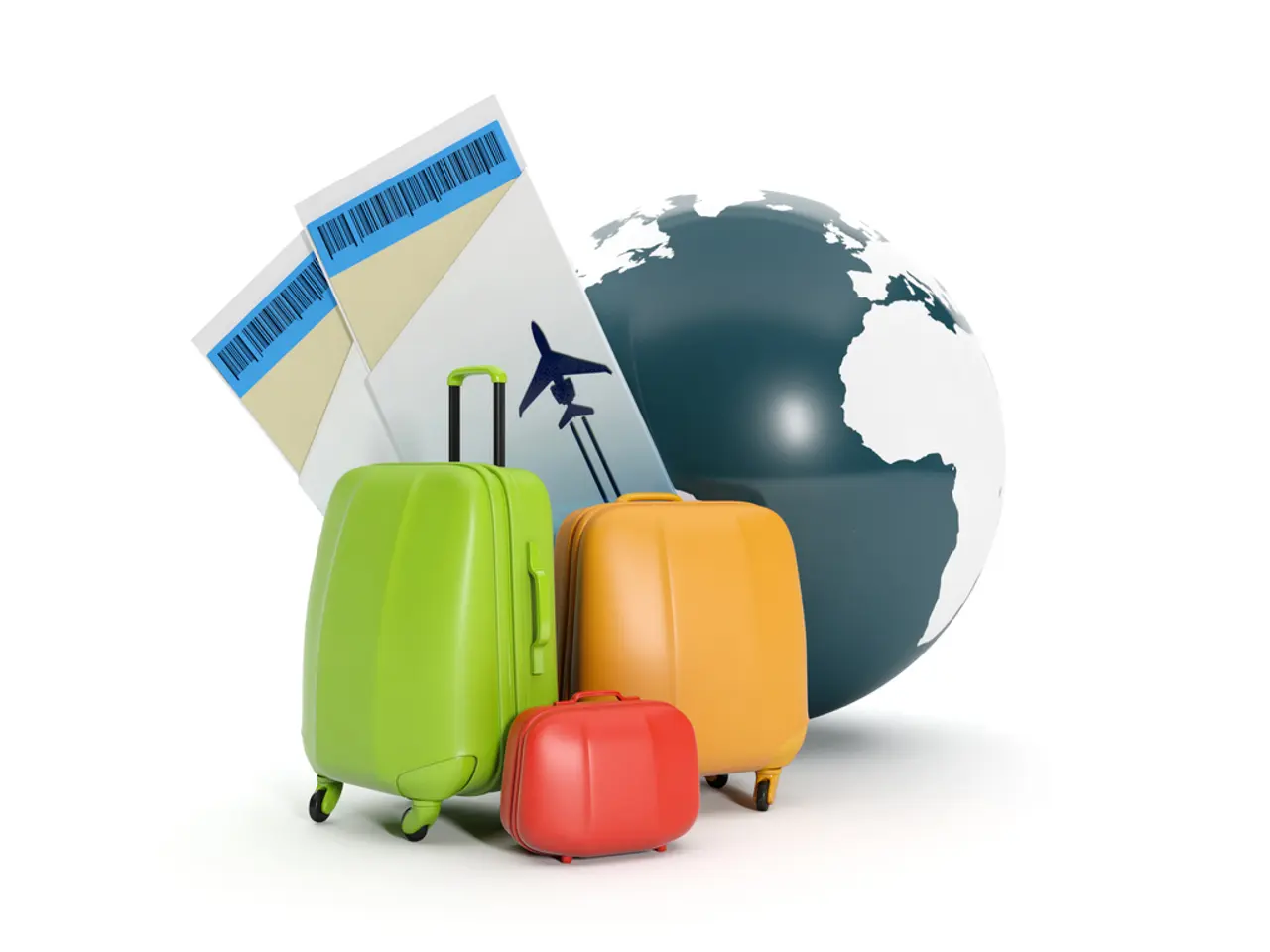Tourism Industry Vulnerability CentreStage Due to Aviation Issues
In a recent symposium, engineers and scientists gathered to discuss the potential for carbonless flight, addressing the growing concern that the aviation sector's failure to change could endanger the tourism industry. The focus of the discussion was on Sustainable Aviation Fuels (SAF) and synthetic electrofuels, which offer significant reductions in lifecycle greenhouse gas emissions compared to conventional jet fuels.
The tourism industry is increasingly demanding that the aviation sector adopt and develop zero-carbon fuels, as it becomes increasingly clear that flying is not the problem; dirty fuel is the issue. The International Civil Aviation Organization (ICAO) has delayed any change in the Carbon Offsetting and Reduction Scheme for International Aviation (CORSIA) until at least 2024, but the need for action is urgent.
One key type of alternative aviation fuel is SAF, derived from renewable feedstocks such as plant-based oils like camelina, jathropha, and algae, waste oils and fats from animals and used cooking oil, and agricultural and forestry waste, as well as other industrial and household waste. These feedstocks are converted into jet fuels compatible with current aircraft engines, allowing blends of up to 50% SAF with traditional fossil fuels.
Another alternative is synthetic SAF, produced using fossil-free electricity and captured carbon dioxide through technologies like LanzaJet’s “Alcohol to Jet” process. An example of this is the "Green Fuels for Denmark" project led by Ørsted, which aims to produce synthetic SAF using wind power, potentially covering up to 25% of an airline’s fuel demand by the 2030s.
Hydrotreated Vegetable Oil (HVO) is another renewable biofuel chemically similar to diesel, used as a sustainable alternative for specific aviation uses such as creating vapour trails. HVO can reduce emissions by up to 90% during its lifecycle compared to conventional diesel.
These alternatives offer several benefits, including reduction of carbon emissions by up to 80% lifecycle compared to fossil jet fuel, drop-in compatibility with existing aircraft engines and fueling infrastructure, and strategic initiatives and partnerships globally involving airlines like SAS and British Airways, which are securing SAF supplies to help meet net-zero emission targets by the mid-21st century.
Governments are also taking action, with the possibility of imposing levies on flights and taxes on aviation fuel. The mantra "There Is No Alternative" (TINA) is no longer valid in the context of clean fuel, as change in the aviation sector towards zero-carbon flying is being discussed and pushed for.
McKinsey recently ran a seminar on zero-carbon flying, highlighting the urgency of the situation and the potential for these alternative fuels to revolutionise the industry and protect the tourism sector. The future of aviation looks greener than ever, as the focus shifts towards carbonless flight and a more sustainable tourism industry.
- Holidaymakers are urging the aviation sector to adopt and develop zero-carbon fuels, as they become aware that it's not flying itself that poses a threat to the tourism industry, but rather the use of dirty fuel.
- Engineers and scientists gathered in a recent symposium to discuss the potential for carbonless flight, emphasizing the need for change to safeguard the destinations and excursions that are integral to tourism.
- local travel and lifestyle are being impacted by the growing concern that the aviation sector's failure to change could endanger the tourism industry, with various alternative aviation fuels being proposed.
- In order to protect the tourism sector, the International Civil Aviation Organization (ICAO) should expedite the implementation of the Carbon Offsetting and Reduction Scheme for International Aviation (CORSIA), which has been delayed until at least 2024.
- Tourists are encouraged by the fact that sustainable initiatives and partnerships globally are working towards securing supplies of alternative fuels like Sustainable Aviation Fuels (SAF) and hydrotreated vegetable oil (HVO), which can potentially reduce carbon emissions by up to 80% lifecycle compared to fossil jet fuel.
- The future of tourism looks promising as the aviation sector focuses on carbonless flight and the implementation of greener technologies like synthetic SAF, derived from renewable feedstocks like plant-based oils, waste fats, and agricultural waste, and produced using fossil-free electricity.





